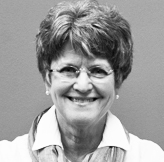 | Karen McNally, LMSW, is the Director of Community Support Services at COMCARE. Karen has worked in the field of mental health for over 20 years where she's been involved in mental health reform, the growth of community based services and the delivery of recovery-oriented, consumer centered treatment. |
Health & Wellness
2011-05-01 15:19:00
Mental illness – I’m not different
Question: If you found out a friend had been diagnosed with a serious mental illness, would you feel differently about that friendship?
Answer: Mental illness can affect anyone! It knows no age limits, economic status, race, creed or color. During the course of a year, more than 54 million Americans are affected by one or more mental disorders. One in four persons will develop a mental illness this year. Will that be you, your husband, a child, neighbor, best friend? Will you educate yourself about mental illness then or before it happens?
When someone appears to be different from us we may view him or her in a negative stereotyped manner. People who have identities that society views as negative are said to be stigmatized. Stigma associated with mental illness is the result of faulty assumptions or misinformation. Yet stigma is a reality for many people with a mental illness, and they report that how others judge them is one of their greatest barriers to a complete and satisfying life. Sadly, our society feels uncomfortable about mental illness. It is not seen like other illnesses such as heart disease and cancer. Due to inaccuracies and misunderstandings, people have been led to believe that an individual with a mental illness has a weak character or is inevitably dangerous. Often, the only way to know whether someone has been diagnosed with a mental illness is if they tell you. The majority of the public is unaware of how many people with mental illness they know and interact with every day.
Due to stigma, the typical reaction encountered by someone with a mental illness (and his or her family members) is fear and rejection. Some have been denied adequate housing, loans, health insurance and jobs due to their history of mental illness. The stigma attached to mental illness is so pervasive that people who suspect that they might be mentally ill may be unwilling to seek help for fear of what others may think. Spouses may be reluctant to define their partners as mentally ill, while families may delay seeking help for their child because of their fears and shame.
Contrary to popular perception, a study in the archives of General Psychiatry revealed that more than one-fourth of the individuals with severe mental illness were victims of violent crime in the past year, almost 12 times the general population rate.
Unfortunately, the media is responsible for many of the misconceptions which persist about people with mental illnesses. Newspapers, in particular, often stress a history of mental illness in the backgrounds of people who commit crimes of violence. Television news programs frequently sensationalize crimes where persons with mental illnesses are involved. Ironically, the media also offers our best hope for eradicating stigma because of its power to educate and influence public opinion.
In the simplest terms, a mental illness is a disease that causes mild to severe disturbances in thinking, perception, mood and behavior. If these disturbances significantly impair a person’s ability to cope with life’s ordinary demands and routines, then he or she should immediately seek treatment from a mental health professional. With the proper care and treatment, a person can recover and resume normal activities.
How do we erase stigma? We can battle stigma when we have facts. Don’t wait until someone you know is the 1 in 4 persons who will develop mental illness this year. Learn what you can do to support yourself, a family member, neighbor, child or friend. You can help erase stigma by educating yourself!
No matter how people develop mental illnesses, confidential help is available. COMCARE of Sedgwick County is the licensed Community Mental Health Center for residents of Sedgwick County. Call our First Appointment line at 316-660-7652. Help is available.


